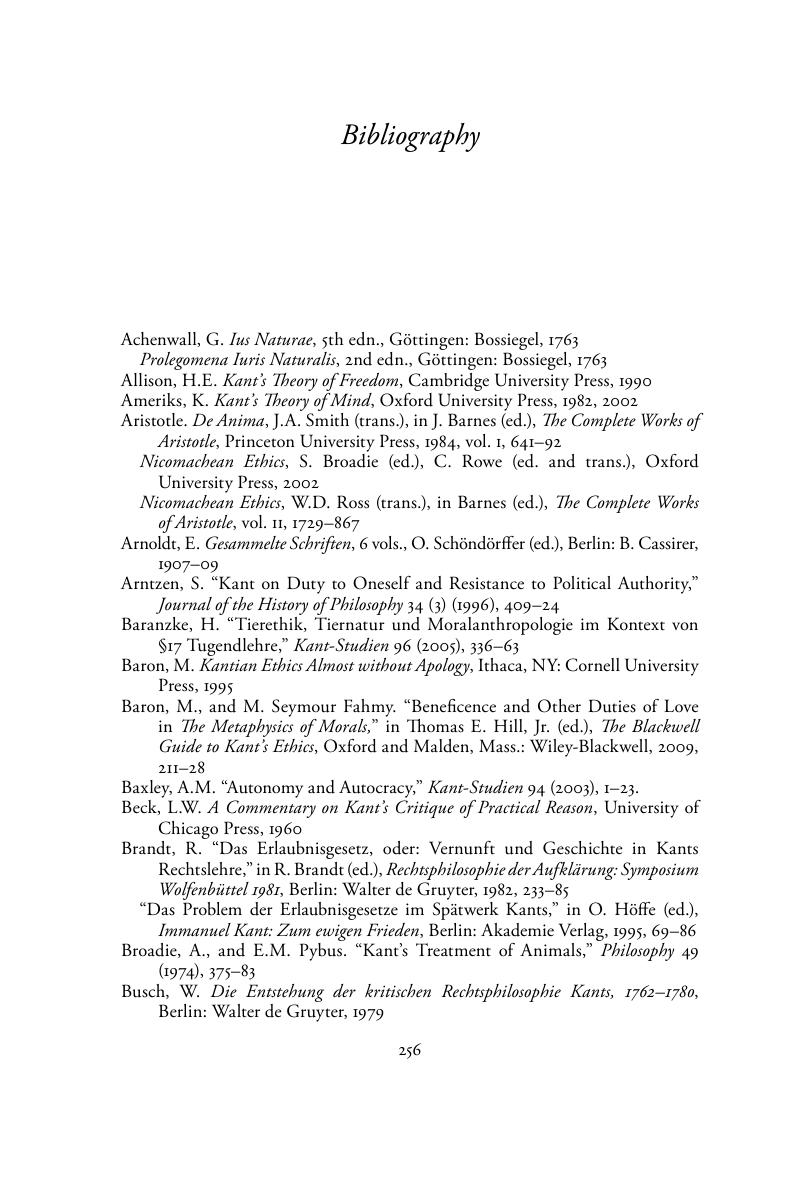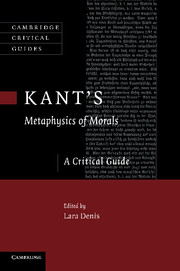Book contents
- Frontmatter
- Contents
- Notes on contributors
- Acknowledgements
- List of translations and abbreviations
- Introduction
- 1 Kant's Metaphysics of Morals: the history and significance of its deferral
- 2 Reason, desire, and the will
- 3 Justice without virtue
- 4 Kant's innate right as a rational criterion for human rights
- 5 Intelligible possession of objects of choice
- 6 Punishment, retribution, and the coercive enforcement of right
- 7 Moral feelings in the Metaphysics of Morals
- 8 What is the enemy of virtue?
- 9 Freedom, primacy, and perfect duties to oneself
- 10 Duties to and regarding others
- 11 Duties regarding animals
- 12 Kant's Tugendlehre as normative ethics
- Bibliography
- Index
- References
Bibliography
Published online by Cambridge University Press: 10 January 2011
- Frontmatter
- Contents
- Notes on contributors
- Acknowledgements
- List of translations and abbreviations
- Introduction
- 1 Kant's Metaphysics of Morals: the history and significance of its deferral
- 2 Reason, desire, and the will
- 3 Justice without virtue
- 4 Kant's innate right as a rational criterion for human rights
- 5 Intelligible possession of objects of choice
- 6 Punishment, retribution, and the coercive enforcement of right
- 7 Moral feelings in the Metaphysics of Morals
- 8 What is the enemy of virtue?
- 9 Freedom, primacy, and perfect duties to oneself
- 10 Duties to and regarding others
- 11 Duties regarding animals
- 12 Kant's Tugendlehre as normative ethics
- Bibliography
- Index
- References
Summary

- Type
- Chapter
- Information
- Kant's Metaphysics of MoralsA Critical Guide, pp. 256 - 263Publisher: Cambridge University PressPrint publication year: 2010



